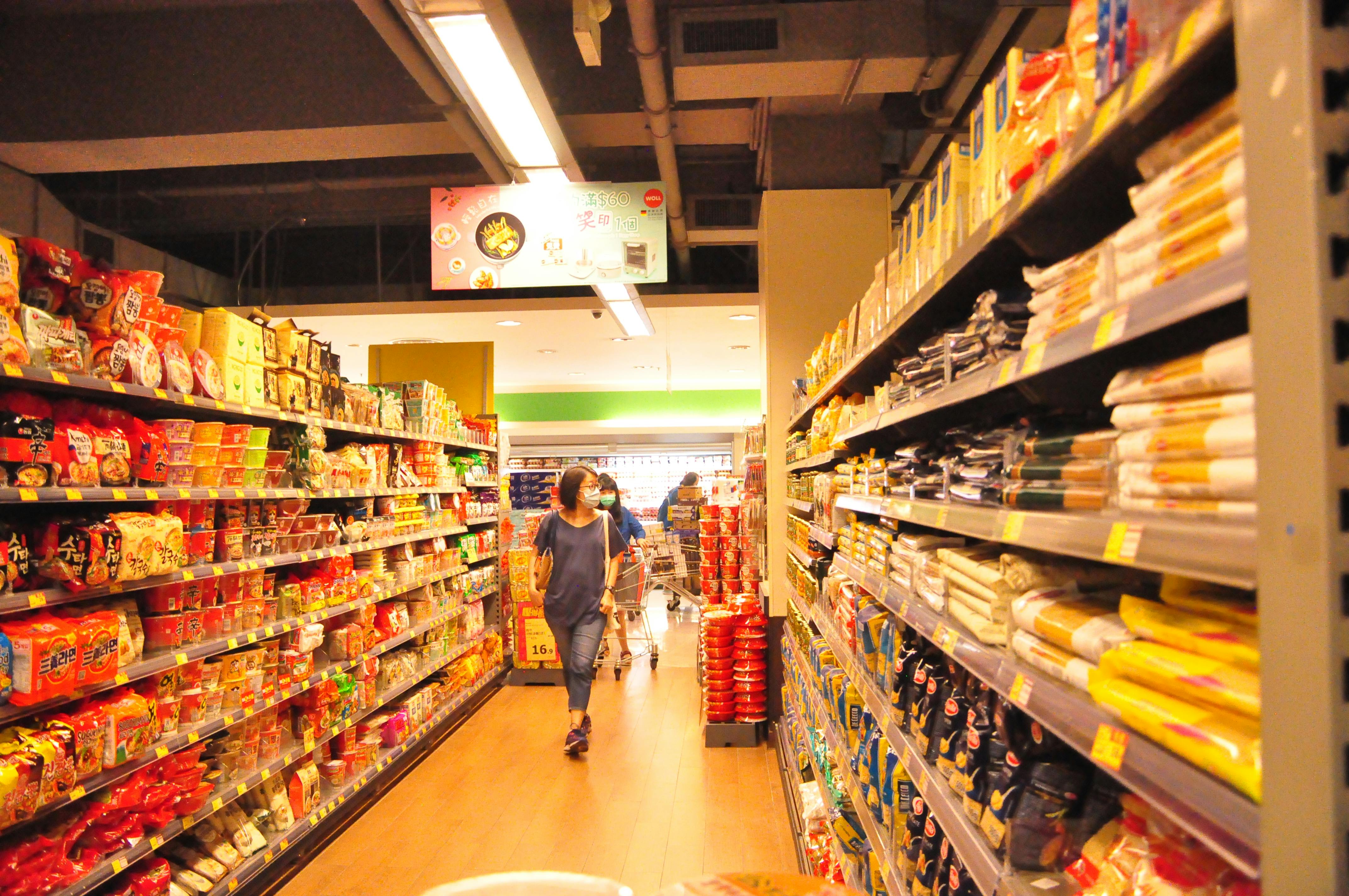In response to recent safety concerns, major grocery retailers like Aldi have initiated extensive food recalls affecting hundreds of thousands of customers nationwide. The incidents stem from undisclosed allergens and contamination hazards, leading to significant public health advisories. Specifically, Aldi has recalled various products including Welby Vitamin 12 and Casa Mamita Churro Bites, while Tesco and Sainsbury's have also issued similar recalls. These actions emphasize ongoing regulatory challenges in ensuring food safety amidst complex supply chain logistics. Consumers are urged to immediately cease usage of recalled products and monitor official announcements for updated information.
In today's rapidly evolving landscape of food safety regulations and consumer protection efforts, major food recalls like those involving Aldi, Tesco, and Sainsbury's have once again brought attention to the critical issue of undisclosed allergens and microbial contaminants in packaged goods. These incidents highlight the ongoing challenges faced by supermarkets in ensuring the safety and quality of their products, particularly given the complexities involved in accurately labeling ingredients and maintaining strict adherence to food safety guidelines.
Recent instances demonstrate the far-reaching impact of these recalls on consumers. For example, Aldi's announcement of a nationwide recall affecting hundreds of thousands of products underscores the need for immediate action and transparency in identifying and addressing potential hazards. Similar recalls from other retailers, including Tesco and Sainsbury's, serve as stark reminders of the systemic nature of these problems and the necessity for comprehensive oversight and enforcement mechanisms.
These events echo broader trends within the retail sector, where consumer expectations continue to rise in terms of both product quality and safety. Retail giants like Aldi, despite their reputation for affordability and convenience, must navigate increasingly stringent regulatory environments designed to protect public health. The interconnectedness of these recalls—across multiple countries and platforms—underscores the global nature of supply chain disruptions and highlights the complex interplay between corporate responsibility, governmental regulation, and consumer advocacy.
Moreover, these incidents provide valuable insights into the potential long-term consequences of unchecked food safety violations. Cases of undetected allergens leading to severe health outcomes, such as the recent listeria outbreak linked to Lidl products, illustrate the grave risks associated with inadequate food labeling practices. Such tragedies underscore the imperative for continuous vigilance and proactive measures in preventing future occurrences.
In light of these developments, stakeholders across industries—from governments to private companies—are grappling with new policy implications and power dynamics. The increased scrutiny surrounding food safety requires robust regulatory frameworks and transparent communication strategies from retailers. Consumers, too, are becoming more discerning about their purchasing decisions based on perceived risks and reliability.
As the landscape continues to evolve, the importance of collaboration among various sectors—including academia, NGOs, and international bodies—cannot be overstated. Ensuring consistent global standards for food safety and traceability will remain crucial for maintaining public trust and confidence in the food supply chain. Ultimately, balancing economic interests with public health imperatives presents a multifaceted challenge that demands thoughtful consideration and collective action.
Aldi Food Recalls Impacting Consumers Nationwide
Recent food recalls have swept across multiple states, affecting approximately 37 million Americans. According to reports, popular supermarkets like Aldi, Tesco, and Sainsbury's have issued voluntary recalls for various products, primarily due to undeclared allergens and contamination risks.
Aldi, known for its extensive range of groceries, has faced significant challenges in maintaining strict quality control measures. The company has acknowledged the need for improvement in its supply chain processes, stating, "We deeply apologize for this incident. Our top priority is ensuring the safety of our customers."
Tesco and Aldi have both voluntarily recalled products from their shelves. For instance, Aldi has recalled its Inspired Cuisine Baby Potatoes with Herbs and Butter, citing potential metal contamination. Similarly, Tesco has recalled certain dates codes of its products, particularly focusing on frozen vegetables and meat products.
In response to these recalls, many consumers are taking precautionary measures. Stores like Best Buy have stopped selling certain products, while others are urging customers to discard affected items immediately. Additionally, the Food and Drug Administration (FDA) has been actively monitoring these recalls and providing guidelines on handling potentially hazardous products.
The situation highlights the critical role of technology in enhancing food safety regulations. Companies like IBM and Cisco Systems are developing advanced software solutions aimed at improving traceability systems and preventing similar incidents in the future.
Moreover, the rise of digital platforms like Amazon and Alibaba has led to increased scrutiny of global food supply chains. Retailers are increasingly relying on third-party logistics providers to ensure compliance with stringent safety protocols.
As awareness of these issues grows, consumers are becoming more vigilant about reading ingredient labels and contacting retailers directly if they suspect their purchases might be problematic. The urgency behind these recalls underscores the importance of continuous innovation and collaboration among industry players and regulatory bodies to maintain public health.
Geographic Relevance and Historical Context
These recalls span across the United States, reflecting the interconnected nature of the North American market. Major cities such as Raleigh and Washington D.C. are not exempt from these issues, indicating regional variations in food safety practices and regulatory enforcement.
Historically, incidents involving undeclared allergens and contamination have occurred frequently, particularly in the preparation and distribution stages of processed foods. These events often trigger nationwide recalls, underscoring the gravity of these issues.
The recent increase in recalls coincides with evolving consumer preferences and technological advancements in food processing and storage. Smart labeling technologies, improved traceability systems, and enhanced supply chain management are crucial in mitig
In light of the ongoing food recalls affecting Aldi and other major retailers, it becomes clear that maintaining consumer safety remains a critical issue for businesses and governments alike. These incidents serve as a stark reminder of the importance of thorough ingredient checks and transparent communication with consumers.
As we look ahead, it is essential to recognize the evolving landscape of food safety regulations and industry practices. With new technologies emerging and global supply chains becoming increasingly complex, ensuring that products meet stringent safety standards requires constant vigilance and adaptation. Retailers must remain proactive in identifying potential hazards and swiftly implementing corrective actions to mitigate risks to public health.
Moreover, the involvement of governmental agencies like the Food Standards Agency in coordinating recalls and providing guidance underscores the need for robust regulatory frameworks and collaborative efforts among stakeholders. This collaboration ensures that timely and effective responses are implemented to address emerging food safety concerns, thereby protecting vulnerable populations from harm.
For instance, the recent recall of Welby Vitamin 12 and Casa Mamita Churro Bites highlights the necessity for rigorous quality control measures throughout the production process. Such recalls demonstrate that even seemingly innocuous products can harbor hidden dangers if left unchecked, emphasizing the importance of continuous monitoring and verification procedures.
In conclusion, the ongoing food recalls underscore the multifaceted nature of ensuring food safety within our communities. By prioritizing transparency, innovation, and collaboration, both businesses and regulators can work together to create a safer environment for all consumers. Let us continue to learn from these experiences and strive towards achieving a future where food products are consistently safe and reliable for everyone.










